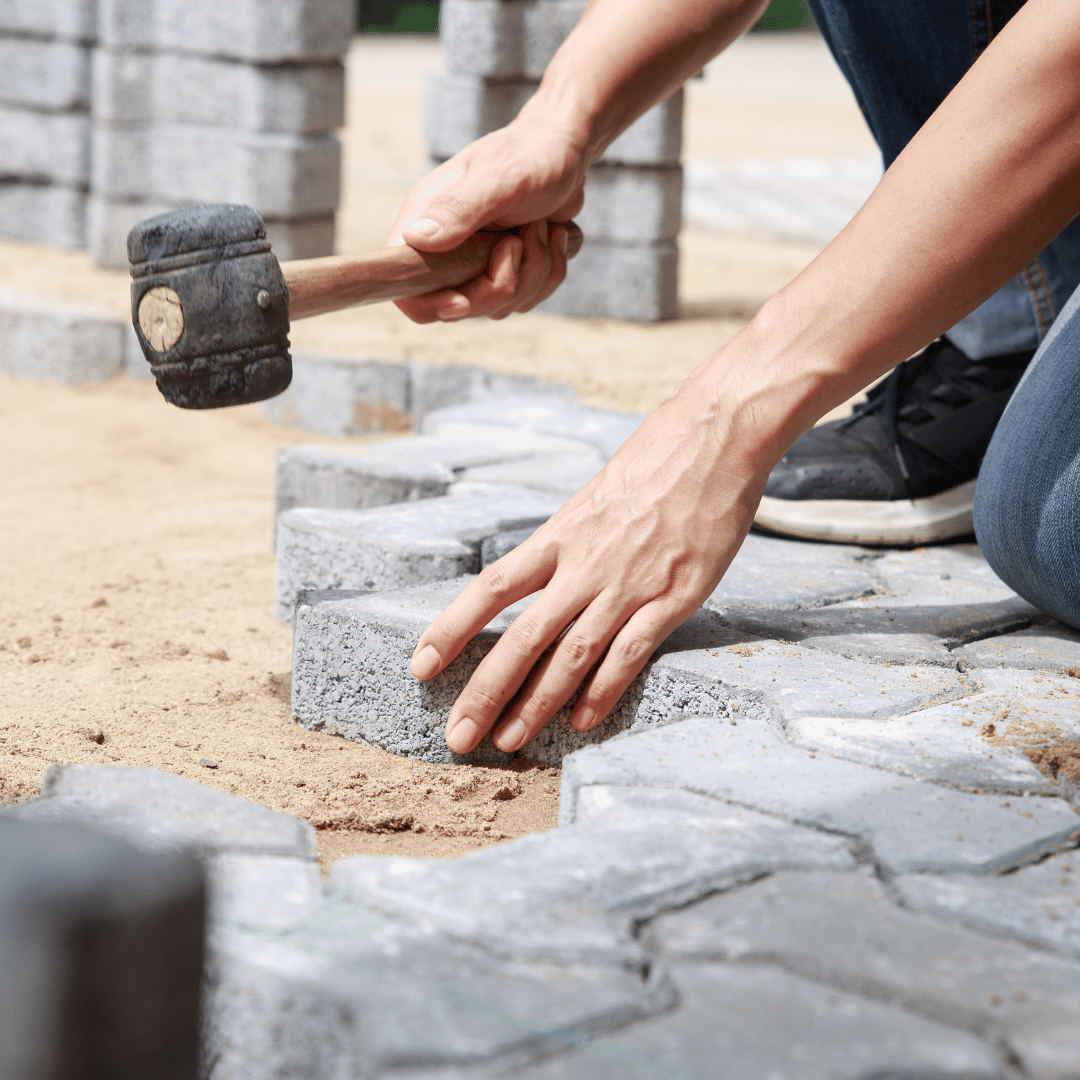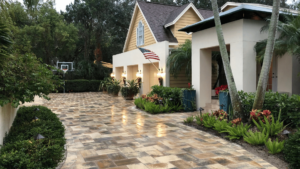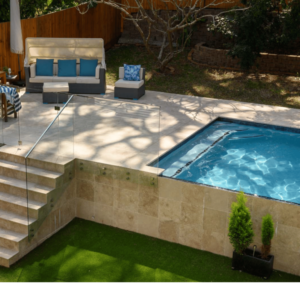Introduction to DIY Driveway Installation
In the era of do-it-yourself projects, installing your own driveway has become a popular undertaking for many homeowners. The allure of customizing your home’s entrance and potentially saving on costs drives this trend. However, it’s crucial to understand that driveway installation is not just about aesthetics; it requires careful planning, physical labor, and a basic understanding of construction principles. This guide aims to navigate you through the essentials of DIY driveway installation, from selecting the right materials to understanding the installation process. Whether you’re contemplating a cost-effective solution or aiming for durability and style, we’ll cover key aspects to ensure your driveway not only looks great but also stands the test of time and use.
Can You Install a Driveway Yourself?
Embarking on a DIY driveway installation can be a rewarding challenge, but it’s important to recognize the complexities involved. It requires a clear understanding of the groundwork, materials, and the process. While certain types of driveways, like gravel, might be more manageable for a DIY approach, more complex installations such as concrete or asphalt typically demand professional skills and equipment. The key is to assess your capabilities realistically and understand the scope of work. If you have experience with similar home improvement projects and access to the necessary tools, a DIY driveway could be a feasible project. However, for more intricate designs and durable finishes, professional expertise might be necessary to ensure a long-lasting and safe driveway.
How to Build a Cheap Driveway
Creating an affordable driveway involves selecting materials and methods that balance cost and functionality. Gravel is a popular choice for budget-conscious homeowners due to its low material cost and relatively simple installation process. Recycled materials like crushed concrete can also offer a cost-effective solution. It’s important to factor in not only the initial installation cost but also long-term maintenance. Preparing the site correctly, such as ensuring proper grading for drainage and compacting the base material, can reduce future expenses. While cheaper options might require more maintenance, careful planning and material selection can lead to significant savings.
Preparing for a New Driveway
The preparation phase is crucial for a successful driveway installation. This includes measuring the area, removing any existing driveway materials, and ensuring a level base. It’s essential to consider local weather conditions, as these can affect the choice of materials and the installation process. Proper drainage is a key consideration to avoid water pooling. Also, checking local building codes and obtaining necessary permits is vital to ensure compliance with regulations. The most cost-effective driveway balances upfront material costs with long-term durability. Concrete and asphalt are often considered reliable for their longevity, while gravel is more affordable initially but may require more maintenance. The best type of driveway depends on individual needs, preferences, and budget. The cost of installation varies widely based on material, size, and labor, with gravel being the cheapest permanent option.
Most Cost-Effective Driveway Options
When considering the most cost-effective driveway, material choice plays a pivotal role. Asphalt offers a balance between cost and durability, making it a popular choice for its relatively low initial investment and longevity. Concrete, while more expensive upfront, is valued for its long lifespan and minimal maintenance. For those seeking a more economical option, gravel driveways are less expensive but require more upkeep. Ultimately, the most cost-effective driveway depends on your long-term budget, maintenance willingness, and the specific demands of your property’s landscape.
Most Reliable Driveway Types
The reliability of a driveway is gauged by its durability and ability to withstand wear and tear. Concrete driveways are renowned for their longevity and minimal maintenance, making them a highly reliable choice. Asphalt, while requiring more frequent upkeep, is resilient and better suited for colder climates due to its flexibility. Paver driveways, known for their aesthetic appeal and strength, offer reliability through individual pavers’ ability to move without cracking. The choice of the most reliable driveway depends on climate, usage, and personal preference for maintenance and aesthetics.
Best Driveway Choices for Your Home
Selecting the best driveway involves considering various factors including climate, maintenance preferences, budget, and aesthetic appeal. Concrete driveways are renowned for their durability and low maintenance, making them a great all-round choice. Asphalt driveways, preferred in colder climates, offer resilience and easier repair options. For those seeking aesthetic diversity and elegance, paver driveways, made from materials like brick or natural stone, offer customizable designs. The best choice depends on your specific needs, local weather conditions, and how the driveway complements your home’s overall appearance.
How Much Does Driveway Installation Cost?
The cost of driveway installation varies widely based on factors like material choice, size, and labor. Economical options such as gravel can be the most affordable, with costs increasing for asphalt and then concrete. Premium materials like pavers or stamped concrete tend to be more expensive. The final price also depends on the complexity of the installation, geographical location, and additional features like borders or decorative elements. It’s crucial to get multiple quotes to understand the range of costs for your specific project.
The Cheapest Permanent Driveway Options
When considering the cheapest permanent driveway options, gravel typically stands out due to its low material and installation costs. Other cost-effective solutions include basic concrete or asphalt, which, while more expensive than gravel, offer a balance of affordability and durability. Recycled materials like crushed concrete or brick can also be economical choices. It’s important to consider not only the upfront costs but also the long-term maintenance and lifespan of the materials to truly gauge their cost-effectiveness.
In conclusion,
Installing a driveway is a significant project that requires careful consideration of various factors including cost, material type, climate, and personal preferences. While DIY installations can be budget-friendly, they demand a certain level of skill and understanding of the process. Options range from economical gravel to more durable, albeit expensive, concrete and paver driveways. Ultimately, the best choice depends on individual needs, balancing upfront costs with long-term maintenance and reliability. It’s essential to thoroughly research and plan to ensure a successful driveway installation that enhances your home’s curb appeal and functionality.
Frequently Asked Questions
Paver installations are known for their durability, versatility, easy maintenance, enhanced aesthetics, and eco-friendliness.
Consider style and design, material, color coordination, and texture when selecting pavers.
The process includes site preparation, base installation, edge restraints, sand bedding, paver installation, joint sanding, and final compaction.
Costs vary based on several factors including the area’s size, materials, and specific installation requirements.
A well-maintained paver driveway can last up to 30-50 years.
Yes, options include concrete, stone, and brick pavers, each with unique characteristics.
Properly installed paver driveways can support heavy vehicles, but the subgrade and subbase installation are crucial.
They require less maintenance than other types, but some tasks like power washing and replacing damaged pavers might be necessary.
Yes, but it may require additional structural supports like retaining walls.
Pavers can be placed over concrete in certain contexts, but it’s not recommended for driveways due to the need for flexibility.






